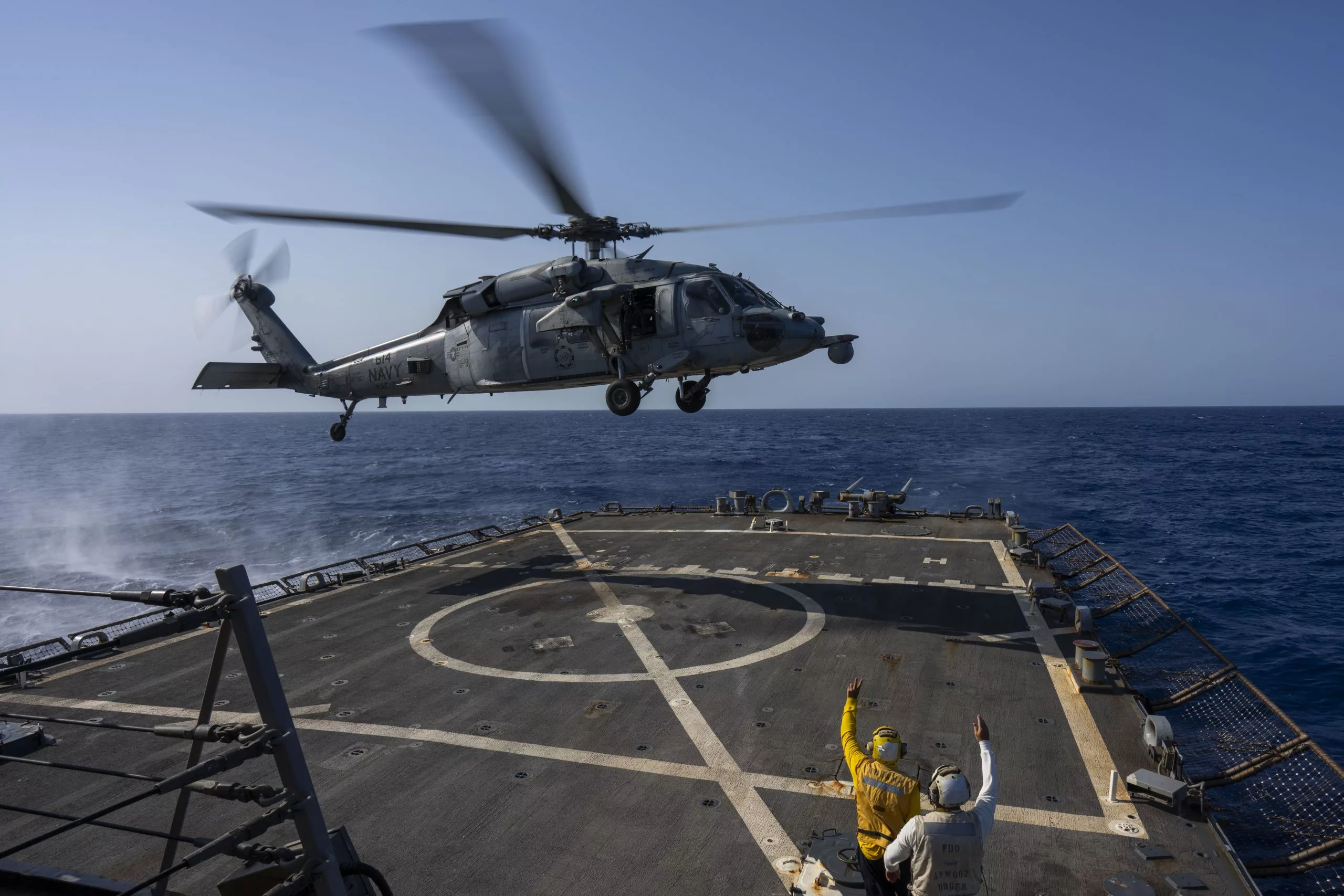WASHINGTON (AP) — The U.S. has increased its military presence in the Middle East by several thousand troops, sending an array of fighter jets and other aircraft to bolster the protection of U.S. forces and allies.
The decision brings the total number of American troops in the region to as many as 43,000, including more than a dozen warships.
Israel’s latest surge in attacks in Lebanon, including strikes that have killed Iran-backed Hezbollah leader Hassan Nasrallahand several of his top commanders and officials, is a significant escalation that has fueled fears of all-out war in the Middle East.
Defense Secretary Lloyd Austin has increased the readiness levels of additional U.S. forces so they are prepared to deploy for any contingency, Air Force Maj. Gen. Pat Ryder said.
Austin and other leaders “remain focused on the protection of U.S. citizens and forces in the region, the defense of Israel and the deescalation of the situation through deterrence and diplomacy,” said Ryder, the Pentagon press secretary.
Here’s a look at the U.S. military presence in the Middle East:
Normally, about 34,000 U.S. forces are deployed to U.S. Central Command, which covers the entire Middle East. That number grew in the early months of the Israel-Hamas war to about 40,000 as additional ships and aircraft were sent in.
It spiked to nearly 50,000 when Austin ordered two aircraft carriers and their accompanying warships to stay in the region as tensions roiled between Israel and Lebanon.
One carrier strike group has since left and moved into the Asia-Pacific. But the decision to send more aircraft is moving the troop total to roughly 43,000.
The Pentagon recently said it was sending a small number of additional troops to the Middle East. Officials have not provided details about the deployment to Cyprus but have suggested the teams are part of ongoing preparations for any needs in the region, including the possibility of an evacuation of Americans from Lebanon.
The beefed-up presence is designed both to help defend Israel and protect U.S. and allied personnel and assets. U.S. officials spoke on condition of anonymity to discuss details of troop deployments.
Navy warships are scattered across the region, from the eastern Mediterranean Sea to the Gulf of Oman, and both Air Force and Navy fighter jets are strategically based at several locations to be better prepared to respond to any attacks.
The U.S. has one aircraft carrier in the region, the USS Abraham Lincoln, which had been slated to leave around mid-October. Austin has extended its deployment for about another month, according to one of the officials.
Austin has done the same to a few other carriers and warships in the region several times in the past year so that there has been the rare presence of two carriers at once.
A second carrier, the USS Harry S. Truman, along with two destroyers and a cruiser, are in the Atlantic Ocean heading east. They will be in the European region in a few days and then travel into the Mediterranean Sea.
American military commanders have long argued that the presence of a formidable aircraft carrier — with its array of fighter jets and surveillance aircraft and sophisticated missiles — is a strong deterrent against Iran.
The Lincoln and one destroyer are in the Gulf of Oman, while four U.S. Navy destroyers and a littoral combat ship are in the Red Sea. The USS Georgia guided missile submarine, which Austin ordered to the region last month, had been in the Red Sea and remains in U.S. Central Command, but officials decline to say where.
There are six U.S. warships in the eastern Mediterranean Sea. They are the USS Wasp amphibious assault ship with the 26th Marine Expeditionary Unit aboard and two accompanying vessels and three Navy destroyers. The Wasp would be prepared to assist in any evacuation.
About a half dozen of the F/A-18 fighter jets from the USS Abraham Lincoln have been moved to a land base in the region. Officials declined to say where.
The Air Force sent in an additional squadron of advanced F-22 fighter jets in August, bringing the total number of land-based fighter squadrons in the Middle East to four.
That force also includes a squadron of A-10 Thunderbolt II ground attack aircraft, F-15E Strike Eagles and F-16 fighter jets. The Air Force is not identifying what countries the planes are operating from.
The U.S. was now sending in more aircraft, Pentagon spokeswoman Sabrina Singh said. The additional personnel includes squadrons of F-15E, F-16 and F-22 fighter jets and A-10 attack aircraft, and the personnel needed to support them. The jets were supposed to rotate in and replace the squadrons already there. Instead, both the existing and new squadrons will remain in place to double the airpower on hand.
The squadrons would not be used in any evacuation of American citizens but would be used to defend U.S. forces and Israel if necessary, Singh said.
The addition of the F-22 fighter jets gives U.S. forces a hard-to-detect aircraft that has a sophisticated suite of sensors to suppress enemy air defenses and carry out electronic attacks. The F-22 also can act as a “quarterback,” organizing other warplanes in an operation.
But the U.S. also showed in February that it doesn’t have to have planes based in the Middle East to attack targets. In February, a pair of B-1 bombers took off from Dyess Air Force Base in Texas and flew more than 30 hours in a roundtrip mission in which they struck 85 Islamic Revolutionary Guards Corps Quds Force targets in Iraq and Syria in response to an attack by IRGC-backed militias that killed three U.S. service members.
Brought to you by www.srnnews.com








